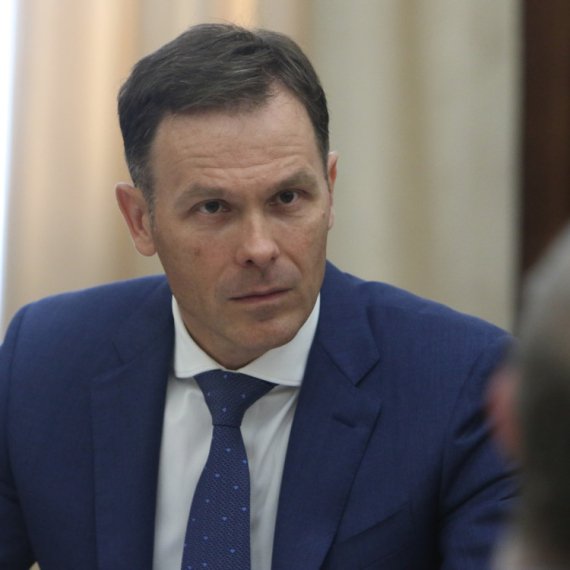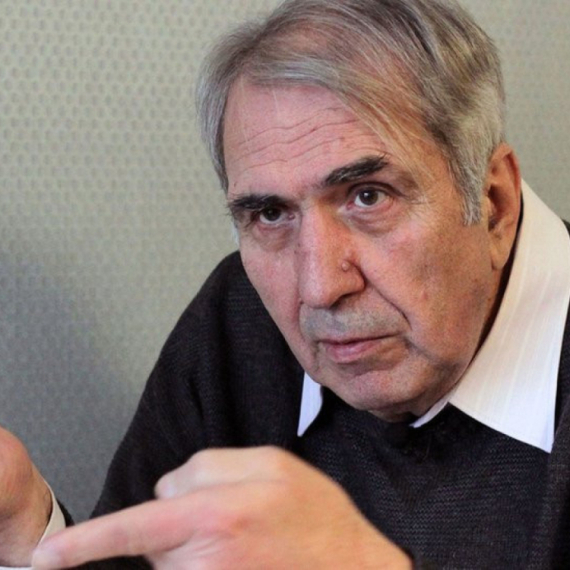IMF approves third installment of loan
The International Monetary Fund (IMF) has approved a third revision of a stand-by arrangement with Serbia.
Thursday, 01.04.2010.
14:17

The International Monetary Fund (IMF) has approved a third revision of a stand-by arrangement with Serbia. This will allow for the withdrawal of the third tranche of the loan, worth about EUR 360mn. IMF approves third installment of loan The overall value of the stand-by is at EUR 2.9bn. The IMF announcement today said that Serbian authorities are planning on withdrawing half of the installment, so the total amount taken out to date will reach some EUR 1.3bn. The loan is used to strengthen the country's foreign currency reserves. “Serbia has continued to achieve good results according to the economic program supported by the arrangement with the IMF,” stated IMF Deputy Director Murilo Portugal after the meeting of the IMF Executive Board in Washington, which approved the latest revision of the arrangement. According to Portugal, the Serbian government austerity measures introduced due to the global crisis have helped reduce its effects on the Serbian economy, so the decrease in production was limited while the decline in domestic demand led to a significant decrease in the trade deficit. “Continued recovery of the economy should be followed by a balanced mid-term growth of the GDP. Stronger structures and fiscal measures, growth of productivity, export and savings are also necessary,” the IMF deputy director added. He pointed out that the goal of Serbian authorities’ strategy was to reduce the high structural fiscal deficit through the limiting of pensions and wages in the public sector and increased investments in infrastructure. Portugal said that Serbia’s budget and fiscal results in 2009 had been achieved in accordance with the IMF program, but that those were mostly based on the short-term measures which should be replaced with more permanent changes in the consumption structure. He emphasized that those changes should be a planned reform of the pension system, structural changes in the education, health and administration systems while keeping the current level of population’s social protection. Adoption of the Law on Fiscal Responsibility should help improve discipline in the budget funds spending, Portugal stated. An assessment of the financial sector conditions has shown that the banking sector in Serbia is well-capitalized and highly liquid and that is has successfully overcome the world financial crisis, but that it is necessary to continue monitoring this area, he said. Portugal also stated that an agreement with banks and founders of the banks within the Vienna Agreement on a gradual reduction of obligations to maintain the credit level in the Serbian market was appropriate and in accordance with the reduction of foreign financial pressures. “Serbia should carry out structural reforms, especially through reforming and privatizing of public enterprises in order to increase the economic growth,” he stressed. The IMF approved the stand-by arrangement on May 15, 2009. According to earlier announcements the fourth revision of the deal is planned for May.
IMF approves third installment of loan
The overall value of the stand-by is at EUR 2.9bn.The IMF announcement today said that Serbian authorities are planning on withdrawing half of the installment, so the total amount taken out to date will reach some EUR 1.3bn.
The loan is used to strengthen the country's foreign currency reserves.
“Serbia has continued to achieve good results according to the economic program supported by the arrangement with the IMF,” stated IMF Deputy Director Murilo Portugal after the meeting of the IMF Executive Board in Washington, which approved the latest revision of the arrangement.
According to Portugal, the Serbian government austerity measures introduced due to the global crisis have helped reduce its effects on the Serbian economy, so the decrease in production was limited while the decline in domestic demand led to a significant decrease in the trade deficit.
“Continued recovery of the economy should be followed by a balanced mid-term growth of the GDP. Stronger structures and fiscal measures, growth of productivity, export and savings are also necessary,” the IMF deputy director added.
He pointed out that the goal of Serbian authorities’ strategy was to reduce the high structural fiscal deficit through the limiting of pensions and wages in the public sector and increased investments in infrastructure.
Portugal said that Serbia’s budget and fiscal results in 2009 had been achieved in accordance with the IMF program, but that those were mostly based on the short-term measures which should be replaced with more permanent changes in the consumption structure.
He emphasized that those changes should be a planned reform of the pension system, structural changes in the education, health and administration systems while keeping the current level of population’s social protection.
Adoption of the Law on Fiscal Responsibility should help improve discipline in the budget funds spending, Portugal stated.
An assessment of the financial sector conditions has shown that the banking sector in Serbia is well-capitalized and highly liquid and that is has successfully overcome the world financial crisis, but that it is necessary to continue monitoring this area, he said.
Portugal also stated that an agreement with banks and founders of the banks within the Vienna Agreement on a gradual reduction of obligations to maintain the credit level in the Serbian market was appropriate and in accordance with the reduction of foreign financial pressures.
“Serbia should carry out structural reforms, especially through reforming and privatizing of public enterprises in order to increase the economic growth,” he stressed.
The IMF approved the stand-by arrangement on May 15, 2009.
According to earlier announcements the fourth revision of the deal is planned for May.



























































Komentari 0